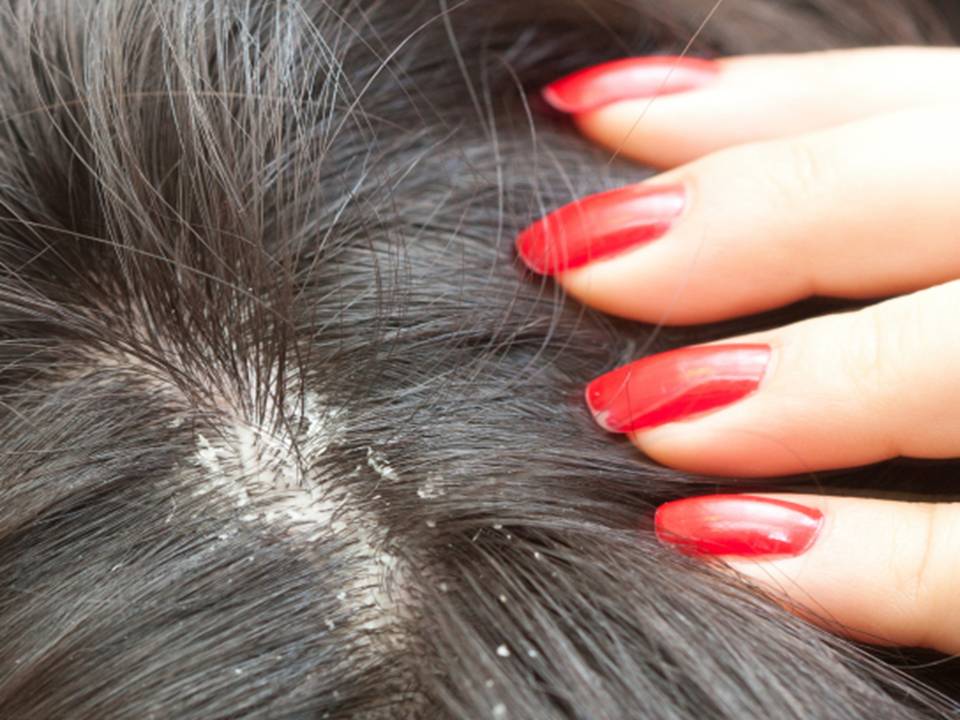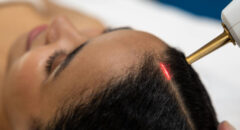 Here are three scalp conditions you and your family should know about:
Here are three scalp conditions you and your family should know about:
I. Ringworm of the Scalp
Ringworm of the scalp is not really a worm, but a fungal infection. Also called Tinea capitis, this infection affects both your scalp and hair shafts, causing small patches of itchy, scaly skin on the scalp.
Causes:
Fungi called dermatophytes cause ringworm of the scalp. Fungi are organisms that thrive on dead tissue, such as fingernails, hair, and the outer layers of your skin.
Ringworm spreads easily, especially among children. You can get ringworm from contact with the skin of an infected person. If you use combs, bedding, or other objects that have been used by an infected person, you are also at risk. House pets, such as kittens and puppies, can also spread ringworm. Farm animals like goats, cows, horses, and pigs can also be carriers. These animals might not show any signs of infection.
Overcrowding and poor hygiene increase the spread of ringworm. Since dermatophytes prefer warmth and moisture, ringworm thrives on sweaty skin.
Symptoms:
The most common symptom of ringworm is itchy patches on the scalp. Sections of hair may break off at or close to the scalp, leaving scaly, red areas or bald spots. Left untreated, these areas gradually grow. Other symptoms include:
- brittle hair
- painful scalp
- swollen lymph nodes (vessels that help the body fight off infection)
- low-grade fever
In more severe cases, you may develop kerion, which are crusty swellings that drain pus. These can lead to permanent bald...
spots and scarring.
Treatment:
The leading antifungal medications for ringworm are griseofulvin and terbinafine hydrochloride. Both are taken orally for approximately six weeks. Both have common side effects, including diarrhea and upset stomach.
II. Alopecia Areata
Alopecia Areata is an autoimmune disease that causes hair to fall out in small patches. Alopecia areata rarely causes total hair loss, however it can prevent hair from growing back. The condition is not life threatening, does not cause pain or illness, and hair loss can stop just as suddenly as it started. It may even grow back on its own without any medical intervention. Hair loss and regrowth varies from person to person.
Symptoms:
The main symptom of alopecia areata is loss of hair in small, round patches (roughly the size of a quarter) on the scalp. However, other types of diseases can cause hair to fall out in this same pattern. This symptom alone should not be used to diagnose alopecia areata.
Patients with alopecia areata experience hair loss in random patches on the scalp. Other forms of alopecia include alopecia totalis, when the hair loss starts happening across the entire head and alopecia universalis, which causes total loss of all body hair.
Treatment:
Some people with alopecia areata opt for nonmedical treatments, such as aromatherapy, acupuncture, and herbal supplements and vitamins. Most alternative therapies have not been tested in clinical trials, however, so their effect on hair loss...
or growth is unknown.
Treatments do not work the same for every patient. Therefore, you may need to try more than one treatment to see a difference. Keep in mind that hair regrowth may only be temporary. Ultimately some patients do not even need treatment since their hair grows back on its own, while others never see improvement despite trying every option. No treatment method is guaranteed.
III. Scalp Psoriasis
Scalp Psoriais can extend beyond the scalp. It can appear on the forehead as shown in the picture on this page. Sometimes, it extends to the back of the neck or appears behind the ears.
Symptoms:
Psoriasis can appear anywhere on the scalp. Sometimes a small patch develops, which can be easy to hide with hair. Scalp psoriasis also can cover the entire scalp. When psoriasis appears on the scalp, you may notice:
- Reddish patches on the scalp. Some patches are barely noticeable. Patches also can be very noticeable, thick, and inflamed.
- Dandruff-like flaking and silvery-white scale. Scalp psoriasis can look a lot like dandruff. Many people who have scalp psoriasis see flaking. But there are differences between scalp psoriasis and dandruff. Unlike dandruff, scalp psoriasis causes a silvery sheen and dry scale on the scalp.
- Dry scalp. The scalp may be so dry that the skin cracks and bleeds.
- Itching. This is one of the most common symptoms. For some the itch is mild; others have intense itching that can interfere with everyday life and cause sleepless nights.
- Bleeding. Because scalp psoriasis can be very itchy, almost everyone scratches. Scratching can make the scalp bleed. Scratching also tends to worsen the psoriasis. Scratching can make the patches larger and thicker. This is why dermatologists tell their patients, “Try not to scratch your scalp.”
- Burning sensation or soreness. The scalp can burn. It can feel extremely sore.
Temporary hair loss. Scratching the scalp or using force to remove the scale can cause hair loss. Once the scalp psoriasis clears, hair usually regrows.
Treatment:
Some people get relief from a medicated shampoo or solution. A few of these can be purchased without a prescription.
But scalp psoriasis can be stubborn. Many people see a dermatologist for treatment. A dermatologist can tell you what can help. The following types of treatment can help scalp psoriasis:
- Medicine applied to the scalp.
- Medicated shampoos.
- Scale softeners.
- Injections.
- Light treatments.
- Biologics and other medicines that work throughout the body.









